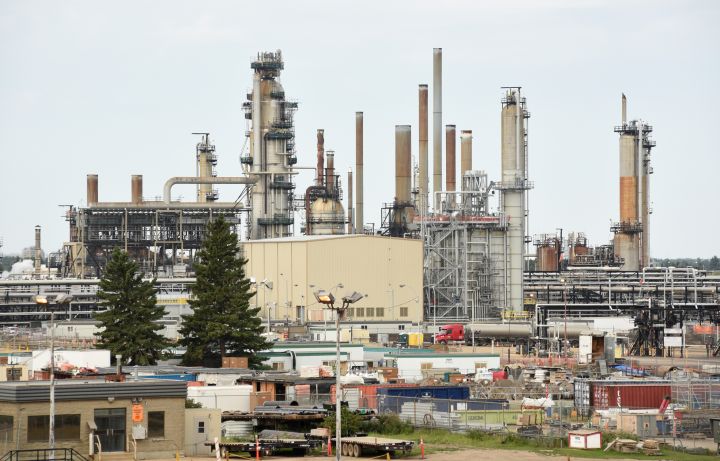Imperial Oil Ltd. investors have voted 86 per cent to defeat a shareholder resolution that it adopt a target to achieve net-zero carbon emissions by 2050.

But the vote held during the Calgary-based company’s virtual annual meeting exposes a rift between its parent, U.S. giant Exxon Mobil Corp., which owns 69.6 per cent of Imperial, and its other shareholders, as the company noted 58 per cent of the shares not held by Exxon were voted in favour of the resolution.
Aequo Shareholder Engagement Services, acting on behalf of Quebec group retirement system Batirente, had argued that Imperial’s current 2023 emissions reduction target is a step in the right direction but that it is also important to have a long-term strategy.
Its motion would have required that Imperial join energy companies including Cenovus Energy Inc., Enbridge Inc., ConocoPhillips, BP, Shell and Total in setting a long-term emissions reduction target.
READ MORE: Michigan agency to include climate in Line 5 tunnel permit review

Get weekly money news
Imperial CEO Brad Corson, however, said at the company’s virtual annual meeting that the board recommended voting against the proposal because, although it supports initiatives to control global warming, it is “premature” to set targets before it knows how to reach them.
He said Imperial is focused on its current goal to reduce greenhouse gas emissions intensity by 10 per cent by 2023 relative to 2016 levels.
READ MORE: Imperial Oil urges shareholders to reject ‘premature’ net zero 2050 carbon motion
“Imperial’s preference is to set a series of concrete targets with specific plans and actions to achieve these goals,” Corson said at the meeting.
“It is very easy to make big promises to 2050 but we want to ensure our goals are credible and measurable and until such time as we have successfully identified clear, achievable steps to net-zero, we feel it is premature to make such a commitment.”
Watch below: (From May 13, 2020) Norway’s sovereign wealth fund is halting investments in four Alberta energy companies — CNRL, Cenovus, Suncor and Imperial Oil — after concluding they produce unacceptable levels of greenhouse gas emissions. Tom Vernon has the details.




Comments
Want to discuss? Please read our Commenting Policy first.